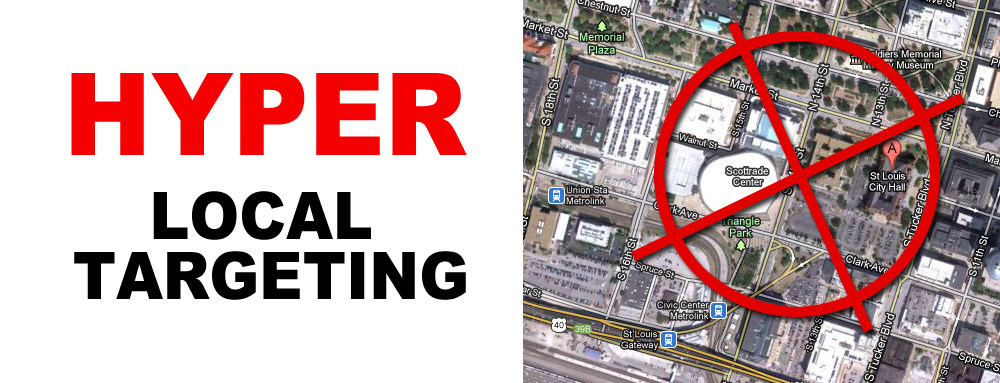CFPB Theories of Recovery and Mitigating Factors
The Consumer Financial Protection Bureau (“CFPB” or “Bureau”) continues to aggressively serve Civil Investigative Demands (“CIDs”) upon lead generators operating within verticals that implicate federal consumer financial laws. What follows is intended to briefly address multiple theories of recovery that the CFPB could potentially pursue and mitigating factors that the Bureau typically considers.
Generally speaking, there are a few different theories of monetary liability that the CFPB pursues when an investigation proceeds to a determination that action is appropriate. These same theories of recovery often form the basis of an initial settlement demand from the CFPB.
The first theory is consumer restitution. An order of restitution requires a defendant/respondent to reimburse consumers the amount of money that consumers lost through the action of inaction of the wrongdoer.
While lead generators are not typically “primary actors” given that they do not, for example, loan money or collect money from consumers, they are nonetheless potentially liable for the acts of those third party primary actors that they have “assisted and facilitated” either by direct action or failure to undertake due diligence.
Thus, for example, if a lender that is required to be licensed under state law made a loan to a consumer on a lead provided by a lead generator and the lead generator failed to undertake sufficient due diligence to ensure that the lender possessed the correct state license, the lead generator could potentially be required, under a restitution theory, to make the consumer whole.
Disgorgement is another theory of potential liability for lead generators. Disgorgement enables a regulator to require a business or individual that obtains money through unlawful actions to give up the “profit” obtained as a result thereof.
The CFPB can seek to recover profits it claims and, if an investigation develops into an enforcement action that proceeds to trial, could prove that a lead generator made as a result of what the Bureau alleges were unlawful actions. Moreover, the CFPB typically seeks to recover profits made business before a CID was issued and an investigation was formally commenced, and throughout the investigation or enforcement action, up to and including the resolution thereof.
The Bureau can also seek civil penalties as a punishment for violating the law. Civil penalties are not related to consumer losses. Rather, they are based upon the number of violations and seriousness of those violations. For example, the CFPB could potentially seek to recover from a lead generator for each violation of the Consumer Financial Protection Act (“CFPA”) that it claims and, if an investigation develops into an enforcement action that proceeds to trial, could prove were committed.
The CFPA contains three tiers of harsh civil penalties that can be assessed against those that violate CFPB rules and federal consumer laws.
Tier I: The CFPB can assess a penalty of up to $5,000 for “any violation of law…for each day during which such violation…continues.”
Tier II: The CFPB can assess a penalty of up to $25,000 from “any person that recklessly engages in a violation of a federal consumer financial law…for each day during which such violation continues.”
Tier III: The CFPB can assess a penalty of up to $1,000,000 from “any person that knowingly violates a federal consumer financial law…for each day during which such violation continues.”
The foregoing tiers are clearly untethered from reality and the CFPB’s approach in determining civil money penalties is somewhat mystifying. The amount of penalty to impose appears to be more of an art, than a science.
The Bureau likely looks at penalties imposed in prior cases with similar facts and circumstances. Of course, as with any regulatory action, some consideration is afforded the type of deterrence or policy message that the CFPB wishes to send.
The CFPA also includes important mitigating factors that both the Bureau and courts consider when determining whether to impose a penalty and, if so, the amount thereof. Mitigating factors are facts that suggest that a business or person ought to receive a lower penalty than that to which it might otherwise be subject.
Section 1055(c) of the CFPA, 12 U.S.C. § 5565(c) lists “Mitigating Factors.” The CFPA states that these mitigating factors apply only to the assessment of civil penalties and, hence, not necessarily to consumer restitution or disgorgement. However, an experienced CFPB, FTC and State Attorneys General Consumer Protection Investigations Lawyer should be able to advocate on your behalf in order to encourage the CFPB to take these mitigating factors into account when negotiating a pre-trial resolution or, were an investigation to go to trial, to persuade the court to consider them prior to entering an order.
The Mitigating Factors are as follows:
- The size of financial resources and good faith of the person charged;
- The gravity of the violation or failure to pay;
- The severity of the risks to or losses of the consumer, which may take into account the number of products or services sold or provided;
- The history of previous violations; and
- Such other matters as justice may require.
It is also critical to the concept of individual liability in CFPB enforcement proceedings. Owners are the most commonly named individual defendants, although, the corporate form has less of an impact for relatively small companies. It is not often that the CFPB names individuals in cases against large companies.
As of May 2014, the CFPB had commenced approximately thirty six enforcement actions, a dozen or so of which named individuals as defendants liable for violations of consumer protection statutes. CFPB Director Cordray has recently weighed in on the issue of individual liability. In short, he has reiterated that there are legitimate occasions where it is appropriate to pursue not only the company that was a party to the consumer’s transaction, but also individuals who were decision-makers or actors relevant to that transaction.
The CFPB has sued both providers of consumer financial products or services, as well as, in certain cases, anyone with managerial responsibility, or who knowingly or recklessly provides substantial assistance to a provider that has engaged in an unfair, deceptive or abusive act or practice.
Other methods by which the CFPB can exercise its authority to name individuals also exist. However, practically speaking, controlling persons, those with managerial responsibility and those who materially participate in the affairs of the company are the most likely candidates for individual liability.
In order for an individual covered person to be exposed to liability, they generally must have actual or constructive knowledge of the alleged unlawful conduct. The individual must approve, ratify, endorse, direct, control and/or otherwise materially participate in the conduct in question.
In conclusion, be mindful of the benefits associated with good faith efforts to ensure those to whom your lead generation services are provided are operating legally. “Willful ignorance” of the business practices of your marketing partners is not a defense to a CFPB action. Although you may attempt to secure contractual disclosure of regulatory matters, you rarely ever know with certainty which marketing partners of yours are already the subject of an investigation.
In addition to the mitigating factors set forth above, the CFPB will also look to the remedial steps that a lead generator has taken after learning of an investigation. The Bureau will look to the internal mechanisms and due diligence efforts that the subject of an investigation has implemented to ensure that alleged or perceived illegalities do not continue.
Efforts in this regard should aid the subject of an investigation in its discussions with the Bureau. Of course, the converse is also true. A lead generator’s failure to address real or perceived inadequacies in its operations that the CFPB believes results in further violations of federal consumer financial laws will severely harm mitigation efforts. There is little doubt that responsible business conduct that includes self-policing, self-reporting, remediation and cooperation may favorably affect the ultimate resolution of an investigation or enforcement action.
There is no reason to believe that the Bureau will not continue to launch additional sweeps throughout the remainder of this year, and beyond. Lead generators that live in consumer financial product verticals should ensure that they proactively develop and implement preemptive in-house compliance programs.
Richard B. Newman is an Internet Marketing Compliance and Regulatory Defense Attorney at Hinch Newman LLP focusing on advertising and digital media matters. His practice includes conducting legal compliance reviews of advertising campaigns, representing clients in investigations and enforcement actions brought by the Federal Trade Commission and state Attorneys General, commercial litigation, advising clients on promotional marketing programs, and negotiating and drafting legal agreements.
Information conveyed in this article is provided for informational purposes only and does not constitute, nor should it be relied upon, as legal advice. No person should act or rely on any information in this article without seeking the advice of an attorney.


